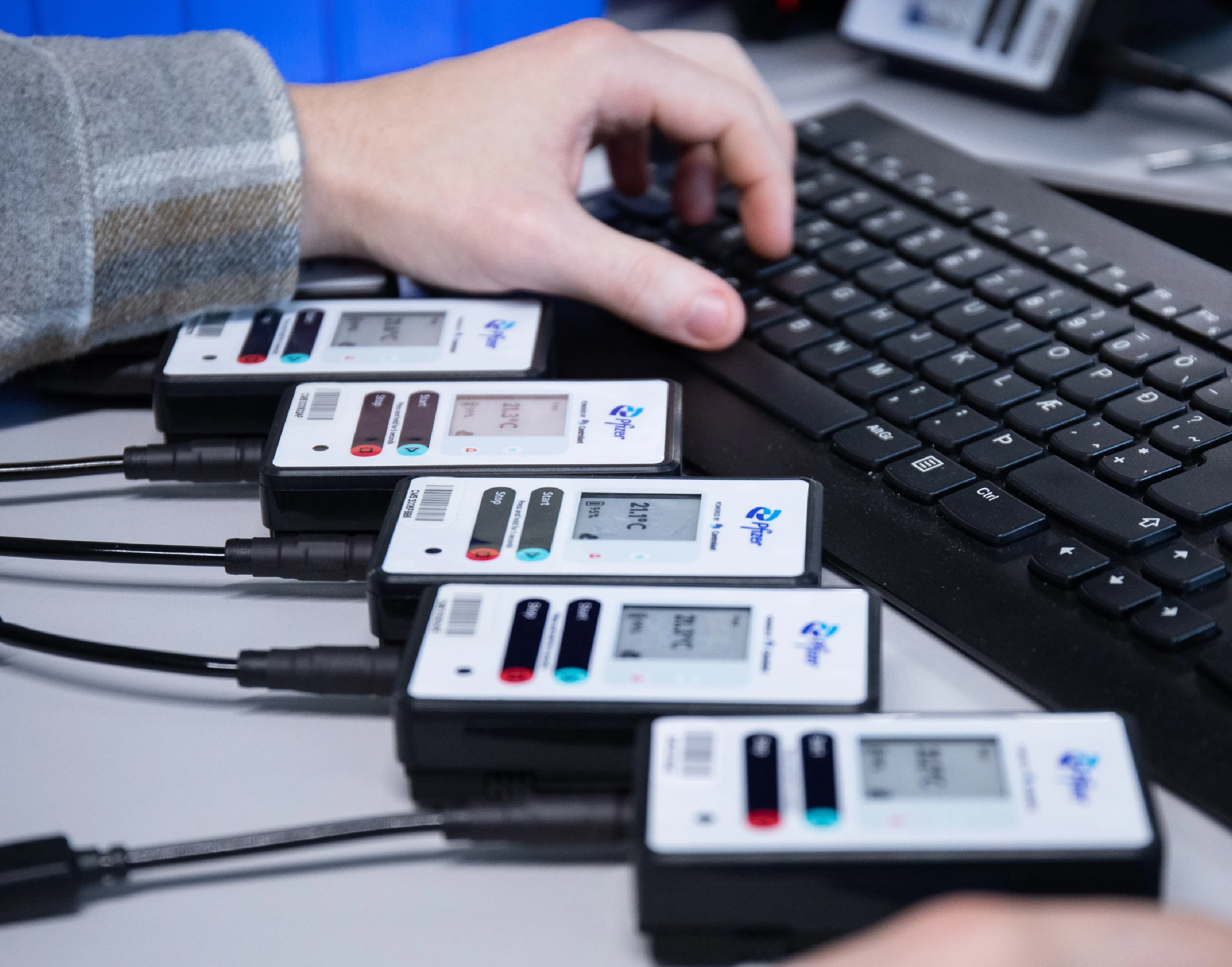Ipsos MORI overcomes PCR test kit distribution challenges through technology
Ipsos MORI researched and tried other solutions before finding cold chain success by partnering with Controlant as its supply chain monitoring provider.

Customer overview
Ipsos MORI, based in London, is the market research arm of the Ipsos Group and is also one of the best-known survey organizations in the UK. It carries out research studies in the areas of social and public policy, covering many topics, including public health. The organization is a completely independent research agency and abides by the Market Research Society code of conduct. Additionally, it houses the largest government research practice in the UK and has supported government policy development and delivery through research, insight, and evaluation for over 50 years. In late 2020, Ipsos MORI developed a partnership with the UK Department of Health and Social Care (DHSC) and Imperial College to conduct a countrywide polymerase chain reaction (PCR) study to detect the prevalence of COVID-19.
Initial challenge
The COVID-19 pandemic has stressed the global pharmaceutical supply chain in unimaginable ways. As the industry has been left scrambling to ensure continuity and minimize disruptions, a greater focus on visibility and agility is becoming the new normal while maintaining product quality throughout distribution. Because of the outbreak, the UK DHSC decided to undertake a national, random sampling of thousands of citizens. This program required over 150,000 test kits collected and tested at a laboratory while maintaining testing sample integrity and quality. This study would offer prevalence data for the virus’ existence in the population within a specific measurement time. Ipsos MORI’s role in the study managed the research process for this project, including developing research materials, sampling, registration, survey completion, test packaging and dispatch, test collection, serving as a participant helpdesk, lab liaison, and test result dissemination.
The main challenge that Ipsos MORI overcame was the transormation from a research firm to a pharmaceutical supply chain partner. In the swift transition, the firm purchased 20,000 single-use loggers from various vendors. Using disparate data loggers resulted in downloading multiple reports and entering shipment data manually, causing complications and issues. To continue down this path, Ipsos MORI would have had to eventually purchase more than 60,000 single-use loggers in total. However, the quality condition monitoring data came after the fact, and issues rendering the kit invalid could not be prevented.
Recommended solution
Ipsos MORI knew it needed a better solution and technology partner. After completing research, the organization decided to partner with Controlant as its solution provider. The start of the sample testing process was delivering an at-home PCR test to patients around the country and then having the carrier return the testing kit from the patient’s home. At the same time, the PCR tests were monitored to ensure they maintained a temperature between 2 and 8 degrees Celsius. During transit and using the Controlant solution, carriers would be able to monitor quality conditions. Logistics providers would receive temperature or other quality alerts so that the driver could be contacted to check on the testing kit conditions and take preventive action.
Additionally, Controlant was able to build in automation based on logistics or business rules. Each night, new shipments were created automatically for each data logger ready to use the next day. Once the boxes were filled with the cooling gel packs, the PCR tests, and the Controlant data logger, the driver initiated the shipment by pressing the start button on the logger. However, if a carrier forgot to press the start button, the shipment automatically started tracking once it reaches the pre-defined temperature. The Controlant devices monitored all quality conditions and then sent automated alerts and notifications to the appropriate stakeholders if the PCR test went outside the temperature limits. This process automation helped reduce the manual steps previously needed to monitor the test.
Project results
Controlant’s scalable solution was deployed within two weeks, and Ipsos MORI started seeing immediate benefits. The partnership with Controlant minimized the number of loggers needed for the COVID-19 testing initiative from 60,000 to only 1,000 of Controlant’s reusable data loggers. This collaboration immediately provided lower purchase costs and considerably reduced e-waste that is created by single-use logger programs.
The automation of the Controlant system immediately eliminated the need for manual uploading resulting in fewer workforce hours needed for the program. The Controlant system also gave the Ipsos team automatic access to live data via dashboards. The loggers record temperature, geo-location, light events, and more, giving Ipsos MORI real-time insights and keeping the test kit safe and useable. The loggers showed the drivers’ progress with hourly reports on route status, including how many boxes have been picked up, the number of started shipments, and which ones have not been picked up yet. Additionally, when the test kits went out of the approved temperature range, the drivers could be alerted via text message and prevent any damage or loss.
Over time, Ipsos MORI has gleaned powerful insights into its program and can see where process improvements could be made through root cause analysis. One of the first lessons learned was understanding the impacts of the packaging being used. Based on Controlant’s data, Ipsos MORI decided to change the packaging type from Styrofoam boxes to coolers with gel packs. Each box would also include a Controlant data logger, resulting in testing kits staying within the expected temperature range and having fewer excursions. Ipsos MORI continued to find areas of process improvement by using the Controlant solution throughout the national COVID-19 testing initiative.


